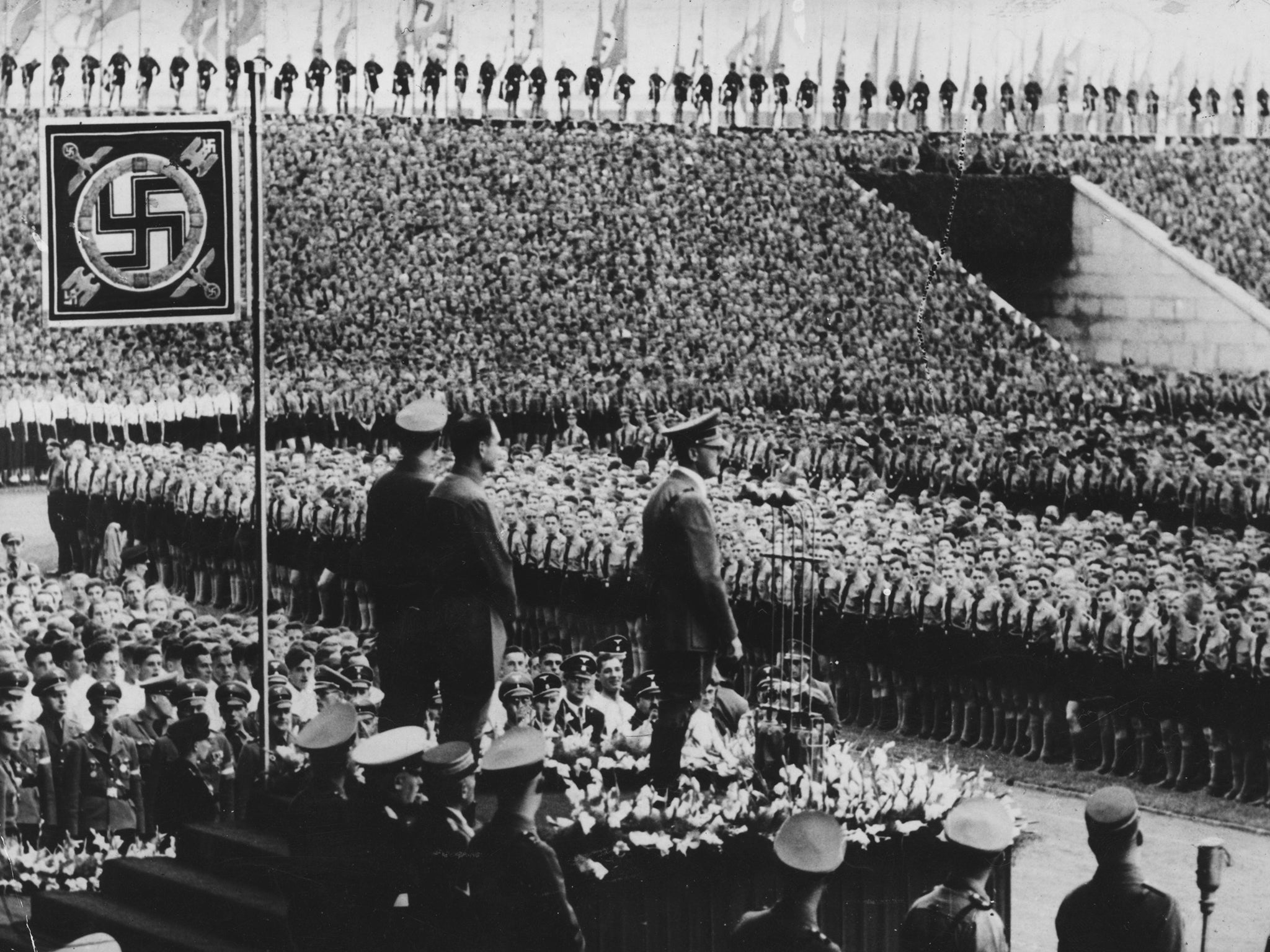What do Trump, Farage and Hitler have in common? A reliance on fiery, antagonistic rhetoric
Victor Klemperer’s moving diaries about the Second World War are of huge historic importance. But the volume he valued most is a short and devastating treatise on the linguistics of the Nazi regime, a lingua franca the far right continues to recycle to this day, says Robert Fisk

Victor Klemperer was perhaps the most eloquent and academically brilliant survivor of the Holocaust. He was never sent to Auschwitz – although he was only hours away from that fate in February 1945 when the Allied bombing of Dresden allowed him to dispose of his Jewish Star – but as a philosopher, French scholar, professor, linguist and humanist, he wrote by far the most moving diaries of the Second World War.
Scarcely days pass when I do not think of Klemperer. His three volumes of diaries are a testimony to viciousness, cruelty and courage from the heart of darkness, trying (and just succeeding) to survive as a German Jew in Hitler’s Reich. But only now have I been able to obtain a translation of the one volume this fine Jewish intellectual valued most: his own short, devastating treatise on the linguistics of the Nazi regime.
He called it LTI – short for his Latin title, Lingua Tertii Imperii, The Language of the Third Reich – and it hangs like a cloak over us today, in the shadow of the new right, of east European nationalism, of racism and I suppose, of Trumpism too. And of the crisis of dictatorship in the Middle East. It shows how language can be used as a prison rather than a means to liberty, how it can wrap us in chains when we always thought it offered a path to freedom. “Nazism,” he wrote, “permeated the flesh and blood of the people through single words, idioms and sentence structures imposed on them in a million repetitions and taken on board mechanically and unconsciously.”
We hear a lot about Palestine now. It does not appeal to us. Anyone who goes there exchanges nationalism and narrowness for nationalism and narrowness
Subscribe to Independent Premium to bookmark this article
Want to bookmark your favourite articles and stories to read or reference later? Start your Independent Premium subscription today.
Join our commenting forum
Join thought-provoking conversations, follow other Independent readers and see their replies